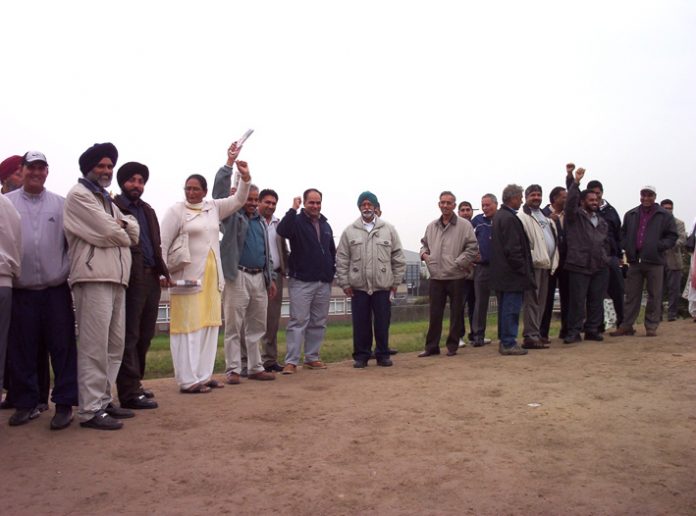THE privatisation of the railways has been a complete disaster and for the families of those killed in rail crashes it is a disaster they will never forget.
The situation has caused such alarm amongst commuters that the BBC recently screened a full-length documentary drama about Ladbroke Grove in which dozens of lives were lost.
The docu-drama exposed the reality of privatisation, which is that it has taken a unified rail network and broken it into pieces in which privateers are driven first and foremost by their profits, in the form of dividends for shareholders, whilst safety – despite their protestations – is relegated to a poor second place.
At the same time, the grieving relatives of the victims of these crashes have been doubly insulted by the abject failure of the capitalist state to put any of the private rail bosses behind bars over these deaths.
The Crown Prosecution Service has decided there is ‘insufficient evidence’ to pursue any criminal charges against any individual or company over the Potters Bar crash in May 2002, when a train from London to King’s Lynn derailed at 100 miles per hour after passing over a defective set of points and crashed into the station. Seven people were killed.
In the Ladbroke Grove disaster, trains running in opposite directions on the same piece of track smashed into one another, after a red light was passed at danger. It later emerged that train drivers were very unhappy about the positioning of the signal that was passed at danger and that they had hardly any time to see it. Ladbroke Grove was a disaster waiting to happen.
Then there is the question of Advanced Train Protection. Despite all the lessons of previous crashes, ATP had not been fitted and to this day there is no sign of it ever being fitted across the rail network, because it is deemed ‘too expensive’.
Hopes that the privateers would be brought to account were raised by the recent Hatfield trial. The trial heard that four people were killed and more than 100 injured when a broken rail caused a London to Leeds express train to come off the tracks at 117mph near Hatfield on October 17, 2000. Since then Railtrack has been wound up and replaced by Network Rail.
As a result of Hatfield, trains were told to run at slow speeds to avoid another disaster while prosecutors said the crash resulted from a ‘cavalier approach’ to safety. But again, manslaughter charges against five rail executives and managers working for Railtrack and Balfour Beatty were thrown out last month and yesterday prosecutors dropped the case against four men still facing charges over alleged breach of safety rules before the crash took place.
In July, Balfour Beatty admitted specific breaches of safety rules after its track maintenance unit was cleared of corporate manslaughter charges. It admitted specific breaches, including the way in which inspections of the Hatfield track were conducted and its response to evidence of problems with the rail.
Despite the disaster of privatisation, the Blair government has been more determined than ever not to renationalise, but to pour literally billions of pounds of taxpayers’ money into the coffers of the privateers.
We have now reached the position where the Labour Party conference has voted twice, in 2004 and 2005, to renationalise the railways, only to be told by ministers that conference and its decisions can go to hell.
It is high time that the rail unions led a campaign of industrial and political action for the renationalisation of the railways.
In fact, the privatisation of the railways is just one privatisation: others are now being implemented, including air traffic control and the measures to break up the National Health Service. The whole trade union movement must take strike action to halt privatisation, bring down the Blair government and bring in a workers government to secure the re-nationalisation of all the privatised services, from rail to water.

